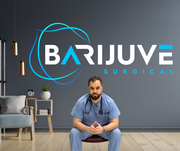
A hernia is a common problem people experience, with about 1 million surgical repairs performed annually in the United States. The condition can cause a number of symptoms that affect your quality of life. While the risk factors vary dramatically, it's still important to recognize if you are at risk so you can take steps to avoid the situation. The following guide outlines what you should know about the issue and its causes so you can do your best to avoid hernia surgery.
A Guide to Hernias
What is a hernia?
A hernia develops when an organ pushes through an opening in your tissue or muscle. The problem can occur in different parts of the body, like the groin and upper thigh. However, they’re most likely to affect the abdomen. The condition doesn't resolve itself, and hernia surgery is the only definitive corrective solution.
What causes it?

The most common reason behind a hernia is a weak, strained muscle. As it weakens, it loses its integrity, which makes it more vulnerable to developing a tear.
There are several factors that can increase your risk of developing a hernia, such as obesity and lifting especially heavy weights. You can also get a hernia if you are pregnant, have chronic obstructive pulmonary disorder (COPD) or cystic fibrosis, or experience constipation that forces you to strain to have a bowel movement.
What are the signs?
You can’t always tell that you have a hernia right away. It can grow slowly or develop suddenly, but in most situations, a noticeable lump that forms in the affected area is a common sign. This bump might not be visible when you lie down, but you’re likely to feel it when you bend, cough, or stand. You may also experience some pain in the affected area. Hernias don’t always present symptoms, and they’re often discovered during routine medical checks.
How is it treated?
Hernia surgery is the only way to treat this condition. Your provider will determine whether a procedure is necessary based on the hernia’s size and intensity. If you’re in considerable pain, you are a prime candidate for an operation.
There are also some steps you can take to calm any symptoms. For example, boosting your fiber intake can minimize symptoms related to constipation. The easier your bowel movements are, the less likely you are to strain. Avoiding heavy foods and maintaining a healthy body weight can also be helpful.
If you seek a reliable provider for hernia surgery, turn to Sofiane El Djouzi, MD, FACS. Dr. El Djouzi proudly serves patients throughout Willowbrook, IL, and the surrounding areas and is committed to patient comfort and satisfaction. He also treats weight loss and gastrointestinal issues through Lap Band® procedures and gastric bypass and other bariatric surgeries. Visit the website to find out how this practice can help you find relief, or call (773) 365-1300 to schedule an appointment.
About the Business
Have a question? Ask the experts!
Send your question

